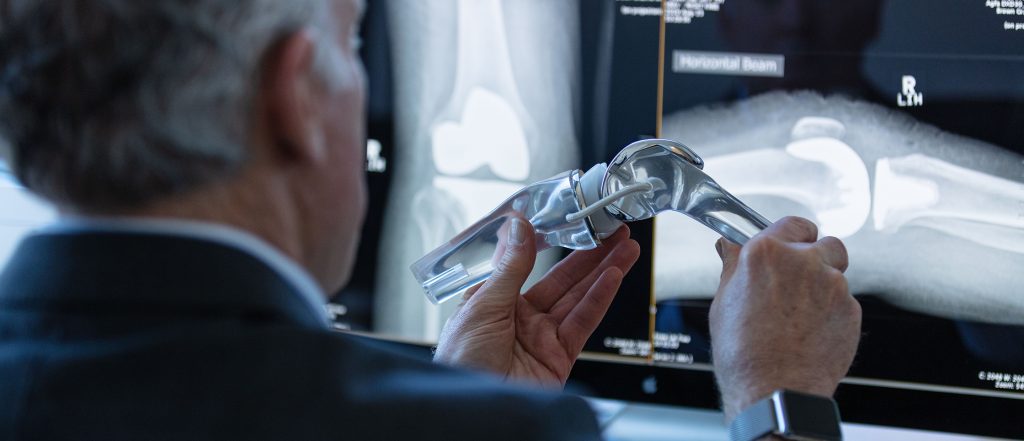Nonsurgical treatment is the first-line management for knee arthritis. The three management pillars are medications, knee-friendly exercise and weight loss if required. Exercise and weight loss are the most significant things you have control over and can affect the long-term course of arthritis.
Medications may be required to help with the arthritic pain. Paracetamol is the recommended first-line analgesic. Paracetamol is helpful for an acute flare of pain or for more regular use with chronic arthritis. Nonsteroidal anti-inflammatory drugs (NSAIDs) may be beneficial for short-term use. However, because of potential side effects, they should be used cautiously for people with heart, kidney and gastrointestinal conditions. COX-2 inhibitors such as Celebrex, Meloxicam and Arcoxia work as anti-inflammatory drugs with a significant analgesic component.
Keeping active as we age is critical, and arthritis can dent this goal. While running and walking long distances may prove challenging, many activities can be performed safely. These activities include walking, cycling, swimming and other water-based exercises. If you continue walking, avoid hard surfaces such as concrete and wear shoes with good shock-absorbing qualities.
Loss of muscle mass starts in our thirties and worsens as we age. Arthritis compounds the problem. An appropriate exercise program, facilitated by a physiotherapist or an exercise physiologist, will strengthen your leg and improve its function. At a minimum, strengthening should include the quadriceps, gluteal and “core” muscle groups.
If you are overweight, losing weight will reduce the load and stress on the knee. Weight loss can have a significant beneficial effect on arthritis as well as improve your overall health. Unfortunately, many people say they can’t lose weight because they can’t exercise. Concerning weight loss, a good diet is more important than exercise.
Reducing or avoiding sugar in our diet is the best thing to do for weight loss. Although pleasant tasting, sugar is toxic and highly addictive. In a fascinating experiment, laboratory rats preferred sugar to cocaine! Sugar or sucrose is made up of two molecules, glucose and fructose. Glucose is an essential energy source for many body systems, including our brains. Fructose, or fruit sugar, is an entirely different molecule having five carbon atoms (the other monosaccharides, such as glucose, have six). Therefore it is metabolised altogether differently. Unlike glucose, fructose cannot be used as a direct energy source. Instead, it is taken up by the liver and converted to free fatty acids, which travel in the blood to be deposited as fat. Along the way, it forms low-density lipoproteins (LDLs), which are the harmful ones that clog blood vessel walls. So eating sugar is the same as eating bad fats!
So the number one rule is don’t drink sugar. Don’t drink anything containing sugar, such as fruit juice or soft drinks or put sugar in your coffee. It may taste good, but it’s the same as eating bad fats. The second rule is to avoid processed food. Many foods labelled “low-fat” are high in sugar. Low-fat food tends to taste bland, so sugar is added for flavouring. The third rule is to minimise your intake of carbohydrates such as rice, pasta and potatoes. These foods are full of calories with little nutritional value.
Despite the measures above, there may come a time when nonoperative management no longer works. At that point, surgery, such as a partial or total knee replacement, is needed.
For information on how to book a consultation with Dr. Brown, please visit our Appointments page.


